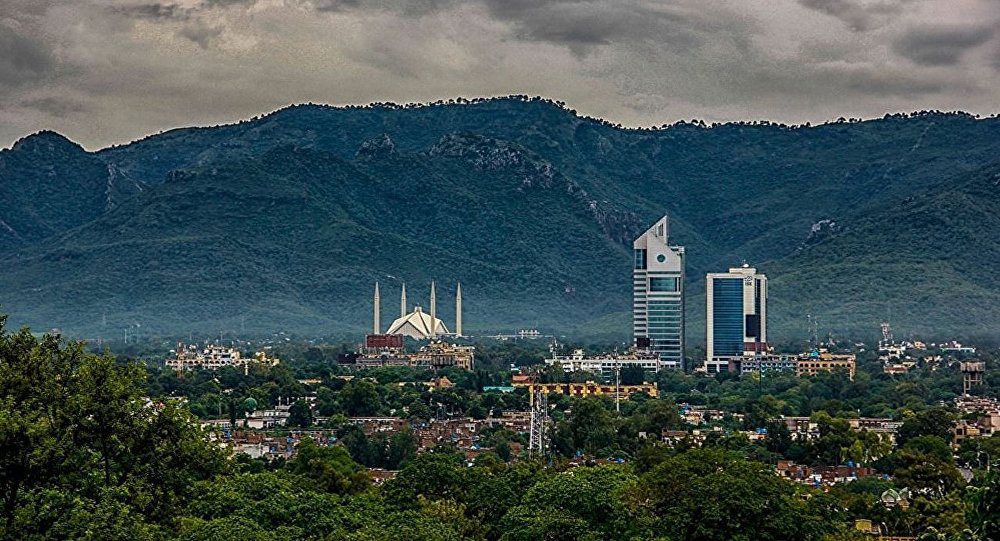Editor's Note:
The writer, Mr. I. Hussain Janjua is a senior media professional and analyst having experience of research & broadcast journalism in different organisations. He is a non-resident fellow of Chengdu Institute of World Affairs (CIWA). (Email: [email protected]; twitter: @ihussainjanjua)
Yet another incident of the capture of nuclear-related materials from unauthorized persons in India has made headlines in the Indian media but largely ignored in the international media. On 4th June 2021, as reported in the Indian media, the authorities arrested seven people possessing approximately 6.4 kilograms of Uranium in the Eastern State of Jharkhand.
This is the second time in less than a month where Indian authorities have captured such a gang in an attempt to sell uranium illegally. An incident of the same nature was reported just a few days ago in May 2021 where unauthorized persons, who were trying to sell nearly 7 kilograms of natural uranium on the black market, were apprehended.
This is a very serious issue because it means two things; first, that Indian local uranium reserves, radioactive nuclear materials, and facilities are not protected and are prone to black marketing.
Secondly, this scenario has emerged because India is not adhering to international bindings of nuclear safety and security such as UN resolution 1540 and (Convention on Physical Protection on Nuclear Material) CPPNM under IAEA to secure its materials, reserves, and facilities. But, the most damaging aspect in this scenario is the discriminatory behavior of the international community, which is criminally silent on the violations of norms, practices, and regulations necessary for nuclear safety and security.
Also, this gang was captured from near the area where Indian Uranium mines of Jharkhand are allocated, the likelihood of access of non-state actors to these mines cannot be denied. These incidents are critical for international security and stability because such radioactive material when sold in black markets could be brought by the non-state and states aspiring for nuclearization.
Unfortunately, in such a scenario all the efforts currently going on to stop the proliferation of nuclear weapons would be hampered. The recurring of these incidents reflects that India, despite being a member of CPPNM is not ensuring the protection of its nuclear materials from theft and sabotage by proper regulations, stringent mechanisms, and control. Other than CPPNM, India has also signed UN resolution 1540, which makes it mandatory for the states to ensure security regulations, mechanisms, equipment required for the security of Weapons of Mass Destruction (WMD) from the non-state actors.

But, surprisingly, so far, the UN or any other international organization has not taken notice of these recurring events. Rather, these mishaps by Indian authorities are shoved under the carpet. These incidents have been reportedly re-occurring in India, media reported these events in 2003, 2008, 2009, 2013, 2016, 2019, and now again in 2021.
In the obtaining scenario, Pakistan has once again expressed deep concern over the illegal possession and sale of uranium in India and called for a thorough global investigation into these incidents, identification of nuclear material use, prevention of proliferation and strict security measures.
External Affairs Ministry spokesperson Zahid Hafeez Chaudhry said, "We have seen reports about another attempt to illegally sell 6 kg of uranium in India and "Pakistan repeats the steps to fully investigate such incidents and strengthen the safety of nuclear materials." ‘
Meanwhile, Peter Stano, the lead spokesperson for the External Affairs of the European Union, has said the European Union is aware of the nuclear material proliferation incident in India.
"All we can say at the moment is that the EU is aware of the information and understands that the Indian authorities are investigating," he said when asked whether nuclear proliferation could pose a serious threat to international peace and security.
The South Asian region, in particular, and the world, in general, is concerned about international peace and security as the current incidents in India indicate the presence of a nuclear black market in India.
Meanwhile, China also called on all the countries to join treaties for non-proliferation aimed at ensuring nuclear safety after reports of seizure of over seven kilograms of radioactive uranium from persons running an international ring in the Indian state of Maharashtra.
“The nuclear terrorism is the security challenge faced by the international community. All governments have the responsibilities to strengthen regulation of nuclear materials to combat on nuclear trafficking to ensure the nuclear safety and security,” Chinese Foreign Ministry’s Spokesperson Hua Chunying said during her briefing while commenting on the recovery of 7,100 grams of radioactive uranium by the police from two persons in Mumbai, capital of Indian state of Maharashtra.
“We call on all countries to join relevant treaties for non-proliferation so that we can ensure the nuclear safety and new contributions to international peace and safety,” she added.
Nuclear safety and security are national matters of any state; however, against the backdrop of the potential damage, which these weapons can bring, they have become an international concern. At a time when many nuclear theft-related incidents have occurred in India in recent years, disgracefully, India still desires to become a member of NSG based on its so-called nuclear record.
If legal bindings such as CPPNM and 1540 would not be implemented in the future by India, the South Asian stability, as well as the international security, would be undermined.
(ASIA PACIFIC DAILY)
 简体中文
简体中文

